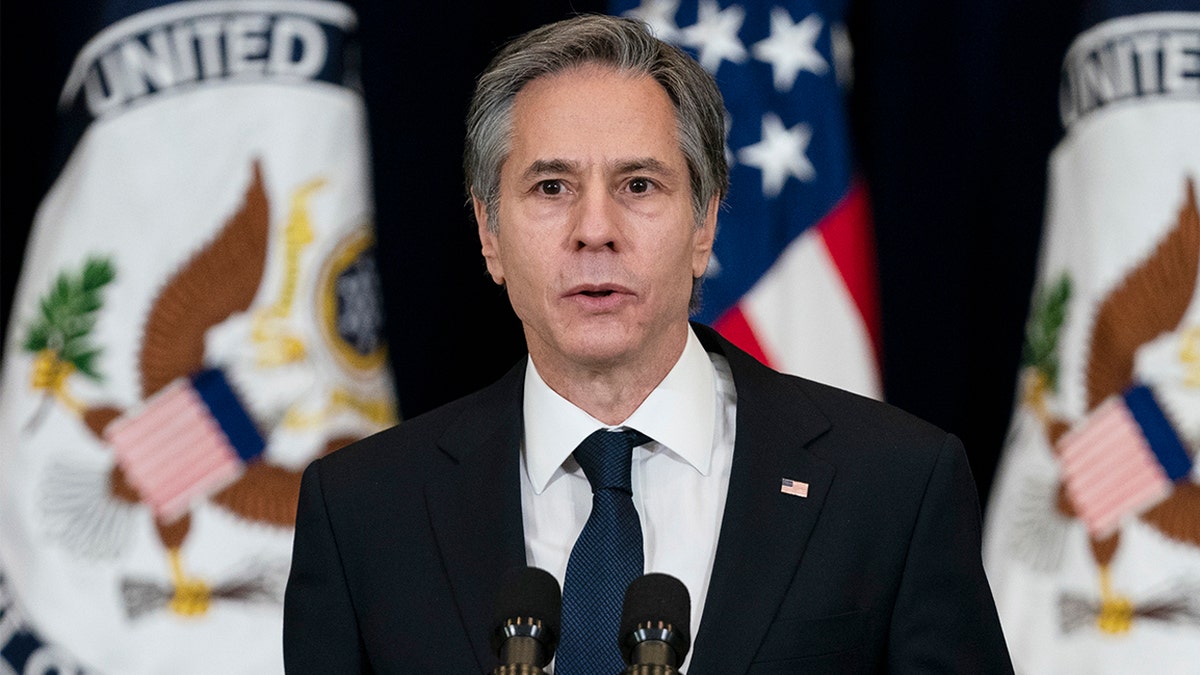US to help Guatemala train its border forces, send $310 million to Central America
International security expert Jim Walsh joins 'FOX News Live' to discuss security on the southern border
Secretary of State Antony Blinken is set to travel to Costa Rica on Tuesday in a push to stem the prolonged migrant crisis, as critics say the Biden administration, specifically Vice President Kamala Harris, isn’t doing nearly enough to combat the migrant surge at the U.S.-Mexico border.
Harris was appointed in March by President Biden to lead diplomatic talks with Mexican and Northern Triangles leaders in order to solve the surge in migration that has led to an overwhelming crisis. While the White House has said Harris’ role is not the border per se, and is instead focused on dealing with the "root causes" of the crisis, critics have pushed back by arguing that in order to do that outreach, it is first necessary to see what is happening at the border.
"I’d say the vice president, if she's actually addressing this issue, needs to do both, needs to go to the border, needs to understand the conditions that are being experienced, needs to understand and talk to the men and women of the Border Patrol, she needs to hear firsthand what they're experiencing, because it’s all interrelated," former acting DHS Secretary Chad Wolf said last month.
Blinken is expected to meet with officials from Central America, Mexico and the Dominican Republic as well as Costa Rican government officials in San Jose on Tuesday.
Harris, meanwhile, has not yet announced any specific plans for visiting the U.S.-Mexico border communities but has scheduled visits to Mexico and Guatemala for early June after having held "virtual meetings" with top officials in both countries in recent weeks.
The State Department said that while in San José, Blinken will meet with President Carlos Alvarado Quesada and Minister of Foreign Affairs Rodolfo Solano Quiros to discuss the "strong U.S.-Costa Rica relationship, which benefits the people of both our countries." Blinken is then expected to participate in a meeting with senior leaders from member states of the Central America Integration System, along with Mexico.

Secretary of State Antony Blinken heads to Costa Rica for discussions on the migrant crisis with Central American diplomats Tuesday. (AP Photo/Evan Vucci, File)
"Together, they will advance a collaborative approach to addressing the root causes of migration, including improving democratic governance, security, and economic opportunity for the people of Central America," State Department spokesman Ned Price said in announcing the trip.
Blinken is also set to meet separately with "several of his foreign counterparts" to discuss joint efforts to address bilateral and regional issues.
KAMALA HARRIS URGED BY NEW MEXICO GOP LAWMAKER TO INVOLVE CONGRESS IN HER ‘ROOT CAUSES’ TALKS
"Through these meetings and engagements, the Secretary will reinforce our cooperation on shared priorities, which also include promoting inclusive economic growth, combating the COVID-19 pandemic and recovering from its effects on our societies, and protecting livelihoods and the planet through environmental stewardship and action on climate change," Price said.
HARRIS ANNOUNCES BUSINESS INVESTMENTS IN CENTRAL AMERICA AS PART OF MIGRANT STRATEGY
Last week, though, Harris announced commitments from businesses and other organizations to invest in Central America to support economic development in the countries from where the migrant surge – which has overwhelmed border officials in recent months – originated.
"Today, we are launching our call to action for businesses to invest in the Northern Triangle," Harris said at a roundtable.
Harris and the Biden administration have been emphasizing the "root causes" of the crisis at the border, such as violence, poverty and climate in Central America – and have called for $4 billion of investment in the region to combat those causes. Critics have instead pointed to the rollback of Trump-era border protections that they say have incentivized the migrant flow that saw 178,000 migrants hit the border in April alone.
As part of its root causes strategy, the White House says 12 companies and organizations – including Mastercard, Microsoft, Nespresso and the World Economic Forum – have made commitments to "support inclusive economic development" in the Northern Triangle countries of Guatemala, El Salvador and Honduras.
"The work is guided by two principals," Harris said. "One, people don’t want to leave home. When they do it’s because they are afraid for their life. The second is we have the capacity to give people hope. That should mean if they stay, help is on the way."
CLICK HERE TO GET THE FOX NEWS APP
The White House says the strategy "will involve significant commitments of U.S. government resources" to support everything from increasing opportunity and fighting corruption to improving security. Part of that approach involves partnerships with the private sector to support economic growth.
The White House has pointed to six areas of focus: reform, food security, climate adaptation, education, digital and financial inclusion, and public health access.
Fox News' Adam Shaw contributed to this report.

















































